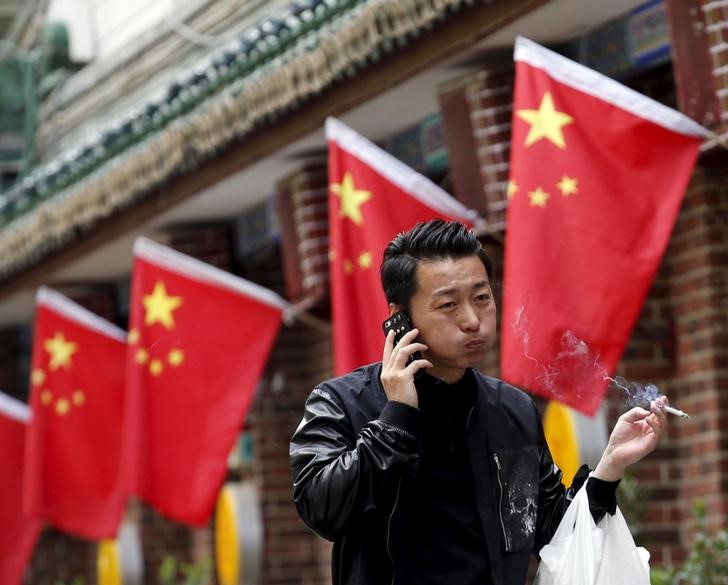(Bloomberg) -- An official gauge of activity in China’s manufacturing sector worsened in October as the effects of an ongoing trade war with the U.S. hit home.
The manufacturing purchasing managers index fell to 50.2 this month from 50.8 in September, missing the median prediction of 50.6 in a Bloomberg survey of forecasters. A gauge of new orders for export fell further into contraction territory, to 46.9, the lowest reading since early 2016.
The majority of sub-indices declined. A level of 50 marks the dividing line between expansion and contraction.
The non-manufacturing PMI, which reflects activity in the construction and services sectors, also worsened to 53.9 from September’s 54.9 reading. The service-sector component dropped 1.3 points to 52.1, the lowest level since mid-2016, while the construction component rose to 63.9, matching the December 2017 record high.
The government this month introduced a raft of measures to stabilize sentiment, adding to steps to boost liquidity in the financial system, tax deductions for households and targeted measures aimed at helping exporters. Those measures have yet to have much effect, and in particular the export orders gauge signals that the economy will see more downward pressure in the months to come.
Top officials including President Xi Jinping also sought to bolster investor confidence, commenting on the fundamental strength of the economy and attempting to talk up the stock market, which has fallen 9 percent this month.
Those attempts have yet to prove successful, according to a set of early indicators compiled by Bloomberg Economics, which had suggested that sentiment among executives and investors continued to deteriorate in October.
On Tuesday, China’s currency slid to its lowest level against the U.S. dollar in more than a decade following a report that U.S. President Donald Trump plans to expand tariffs to cover the full range of imports from China if he is unable to extract concessions from Xi during a Group of 20 summit of world leaders in Argentina at the end of November.
“China-U.S. trade tensions have impacted some industries,” said Wen Tao, an analyst with China Logistics Information Center, which releases the PMI data. “Looking ahead, with the environment cleanup campaign in winter set to kick in, and no positive shift in China U.S. trade frictions, domestic demand will be relatively stable in November, but external demand will continue to decline,” Wen said in a statement on the organization’s website.
(Updates with more detail from third paragraph.)
